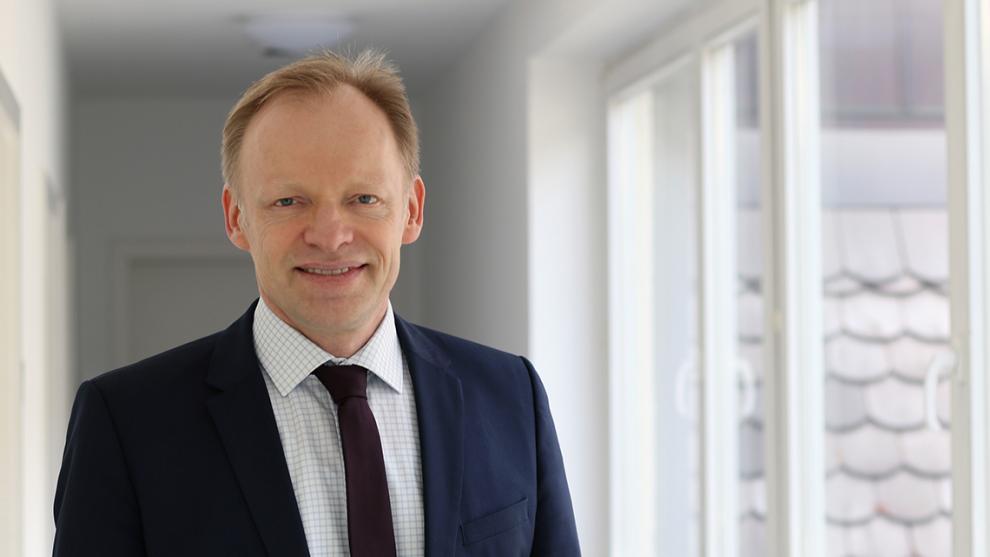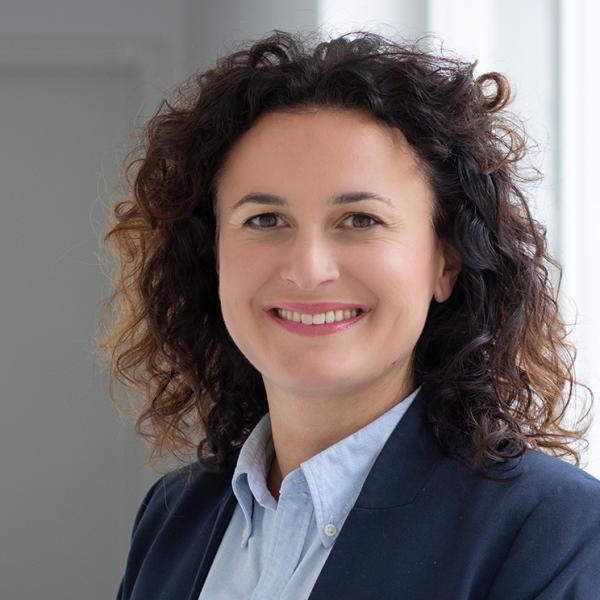ifo Media Center
The ifo Institute invites you to participate in the discussion of interesting economic topics via the Internet. In our ifo Media Center a whole series of remarkable events are available and can be viewed in full length. We also record selected speeches and presentations given by employees or at events and make them available in our Media Center.

Clemens Fuest, président de l'Institut ifo : la Cour constitutionnelle allemande augmente la pression sur les gouvernements des pays de la zone euro
Le jugement de la cour constitutionnelle allemande réduit la marge de manœuvre de la Banque centrale européenne en matière d'achats obligataires en soutien aux pays membres hautement endettés de la zone euro, estime Clemens Fuest, président de l'Institut ifo. « Il en résulte une pression accrue sur les gouvernements des pays membres de la zone euro pour qu'ils adoptent des mesures de soutien via leur propre politique fiscale, plutôt que de se reposer sur la BCE », a indiqué M. Fuest ce mardi à Munich.
ifo President Fuest: German Constitutional Court Increases Pressure on Euro-Area Governments
The ifo President Clemens Fuest believes that the recent German Federal Constitutional Court ruling restricts the scope for the European Central Bank (ECB) to support highly indebted euro-area countries through bond purchases. “In turn, this puts increasing pressure on euro-area governments to provide assistance to individual member states in the form of fiscal policy instead of relying on the ECB,” Fuest said in Munich on Tuesday.
ifo Institute: Short-Time Work Reaches Almost All Sectors in Germany
Employees are on short-time work in almost all industries in Germany. The highest numbers are in restaurants and catering, with 99 percent of businesses making use of short-time work, as well as in hotels, with 97 percent. This is the result of surveys the ifo Institute conducted in April. The key sector of automotive engineering also reports particularly high figures, with 94 percent of companies implementing short-time work. Across industries, the average is 50 percent. “This tops all figures from the 2009 financial crisis,” says Klaus Wohlrabe, Head of Surveys at ifo.
Institut ifo : la situation de l'industrie automobile allemande s'est dramatiquement dégradée
La situation de l'industrie automobile allemande a considérablement empiré, comme l'indique la toute dernière enquête conjoncturelle de l'Institut ifo. L'indice correspondant à la situation actuelle dans le secteur a dégringolé, passant de – 13,2 points en mars à – 85,4 points en avril. C'est la plus forte chute et la valeur la plus basse jamais enregistrée depuis que cet indice est mesuré au niveau de l'Allemagne réunifiée. Durant la crise financière de 2009, cet indice était tombé à – 82,9 points au mois d'avril.
ifo Institute: Situation in the German Automotive Industry Deteriorates Dramatically
The business situation in Germany’s automotive sector has gotten dramatically worse. This is the result of the most recent ifo Business Climate survey. According to the survey, the index for current business in April plummeted to minus 85.4 points from minus 13.2 points in March. This represents the biggest drop and the lowest value since recording of these figures began following Germany’s reunification. During the financial crisis, this index fell to minus 82.9 points in April 2009.
ifo Institut: Kanzlerin beeinflusst Erwartungen in der Coronakrise
Die Pressekonferenzen und Reden von Kanzlerin Angela Merkel in der Coronakrise verändern die Erwartungen in Deutschland. Das hat ein Forschungspapier ergeben, an dem Wissenschaftler des ifo Instituts zusammen mit Wissenschaftlern vom DIW, der LMU München, der HU Berlin und der FU Berlin beteiligt sind. „Die Konsumneigung der Bundesbürger ist nach der Pressekonferenz der Kanzlerin am 15. April um etwa ein Fünftel zurückgegangen“, sagt Andreas Peichl, Leiter des ifo Zentrums für Makroökonomik und Befragungen.
ifo Institute: Many German Companies See Their Existence Threatened
Many German companies feel that the coronavirus crisis threatens their existence. This is the result of the April survey conducted by the ifo Institute. Of the companies surveyed, 29.2 percent said they could survive for three months or less if the pandemic-related restrictions were to remain in place for a longer period; 52.7 percent could hold out for six months or less. “These are worrying figures that point to a coming wave of bankruptcies,” says Klaus Wohlrabe, Head of Surveys at ifo.
ifo Business Climate Eastern Germany: Historic Slump – No End in Sight (April 2020)
The eastern German economy’s downward trend accelerated again in April 2020. The ifo Business Climate Index for the region’s economy as a whole plummeted from 89.6 to 78.9 points, which is in line with the strong slump across Germany as a whole. Eastern German survey participants’ assessments of the current situation and their business expectations plunged more drastically than ever before. The coronavirus crisis has hit all areas of the eastern German economy and is weighing more heavily on the mood of companies than the financial crisis did.
Allemagne : Effondrement des prévisions en matière d'exportations
Le moral parmi les dirigeants des entreprises allemandes exportatrices est en chute libre. Les prévisions communiquées par l'industrie allemande à l'Institut ifo en matière d'exportations ont dégringolé au mois d'avril de – 19,0 à – 50,0 points. C'est le niveau le plus bas constaté jusqu'ici. L'ampleur du recul enregistré est également sans précédent. Covid-19 impacte sévèrement les marchés à l'exportation.
ifo Export Expectations in Free Fall (April 2020)
Sentiment among German exporters is in free fall. In April, the ifo Export Expectations for manufacturing plunged from minus 19.0 points to minus 50.0 points. This is the lowest value ever measured, and the severity of the decline is also unprecedented. The coronavirus pandemic is leaving deep scars on export markets.
Institut ifo : les fermetures liées au Covid-19 ont entraîné un effondrement de 16 % de la performance économique en Allemagne
En Allemagne, les fermetures liées au Covid-19 ont provoqué un effondrement de 16 % de la performance économique. C'est ce qui ressort de l'analyse des enquêtes menées au mois d'avril par l'Institut ifo auprès d'environ 8800 entreprises de quasiment tous les secteurs d'activité. Dans ses estimations, l'Institut ifo a intégré les données fournies par les entreprises sur l'utilisation de leurs capacités aux mois de janvier et d'avril ainsi que l'évolution réelle et attendue de leurs chiffres d'affaires aux premier et deuxième trimestres.
ifo Employment Barometer Plummets to Historic Low (April 2020)
The personnel departments of German companies are preparing for layoffs. The ifo Employment Barometer plummeted to 86.3 points in April after measuring 93.4 points in March. This represents a historic low. There has never been such a marked decline in the barometer itself, which will correspond to a rise in unemployment in Germany.
ifo Institute: German Economic Output Collapses by 16 Percent during Coronavirus Shutdown
During the coronavirus shutdown, economic output in Germany has collapsed by 16 percent. This is the result of an evaluation of April’s ifo surveys among some 8,800 companies across almost all industries. The estimate was based on the companies’ reported capacity utilization in January and in April as well as the actual and expected difference in sales in the first and second quarters.
ifo Business Climate Index Plunges to Historic Low (April 2020)
Sentiment at German companies is catastrophic. The ifo Business Climate Index crashed from 85.9 points in March to 74.3 points in April. This is the lowest value ever recorded, and never before has the index fallen so drastically. This is primarily due to the massive deterioration in the current situation. Companies have never been so pessimistic about the coming months. The coronavirus crisis is striking the German economy with full fury.
Allemagne : Chute historique de l'indice ifo du climat des affaires
Le moral parmi les dirigeants des entreprises allemandes est au plus bas. L'indice ifo du climat des affaires a chuté de 85,9 points[1] au mois de mars à 74,3 points au mois d'avril 2020. C'est le niveau le plus bas constaté jusqu'ici. Jamais, cet indice n'a reculé d'autant. Si cette dégradation est avant tout le résultat d'une détérioration massive de la situation actuelle, jamais non plus, les dirigeants n'ont été aussi pessimistes sur l'évolution des mois à venir. La crise du Covid-19 atteint l'économie allemande de plein fouet.
ifo President Fuest Praises German Coalition Committee but Has Criticism of Details
The ifo President Clemens Fuest has simultaneously praised the decisions that the coalition committee has taken and criticized some details of those decisions. “Fundamentally, the aid package goes in the right direction, but I also see problems, especially with regard to the reduction of VAT for restaurants and catering,” Fuest said in Munich on Thursday.
Institut ifo : 50 % des entreprises allemandes passent en activité partielle
Face à la crise du Covid-19, 50 % des entreprises allemandes optent pour l'activité partielle et 18 % envisagent de supprimer des emplois. C'est le résultat provisoire de la toute dernière enquête menée par l'Institut ifo au mois d'avril. Dans le commerce, 55 % des collaborateurs travaillent actuellement en activité partielle, alors qu'ils sont 53 % dans l'industrie, 48 % dans les services et seulement 37 % dans le BTP. « Pour bien des entreprises, l'activité partielle est la solution la plus appropriée pour amortir les pertes de chiffre d'affaires temporaires et conserver leurs effectifs », indique Klaus Wohlrabe, le directeur des enquêtes de l'Institut ifo.
ifo Institute: 50 Percent of German Companies Are Using Short-Time Work
During the coronavirus crisis, 50 percent of German companies are introducing short-time work, while 18 percent plan to cut jobs. This is the preliminary result of the latest survey conducted by the ifo Institute in April. In trade, employees at 55 percent of companies currently have short time work arrangements, in manufacturing 53 percent, in the service sector 48 percent, and in construction only 37 percent. “For many companies, short-time work is the method of choice for cushioning short-term sales losses and retaining their workforce,” says Klaus Wohlrabe, Head of Surveys at the ifo Institute.
ifo Institute: Share of Rural Population in Germany at Its Lowest Level since 1871 – “While Cities Overflow, the Countryside Thins Out”
The share of Germany’s population living in the countryside has reached its lowest level since 1871. This is the result of a study conducted by the ifo Institute’s Dresden Branch. This urbanization can be observed nationwide – both in federal states that are growing, such as Hesse, and in those that are shrinking, such as Saxony.
ifo Institute: Shutdown Affects All Federal States to a Similar Extent
The far-reaching shutdown of economic life in Germany and the interruption of cross-border supply chains are affecting all of Germany’s Länder to roughly the same extent. This represents a substantial difference compared to the 2009 financial crisis, as an ifo scenario calculation showed. Even if the immediate economic constraints are further eased in May following the German federal government’s recent decisions, it will take some time for GDP to return to its original level.




